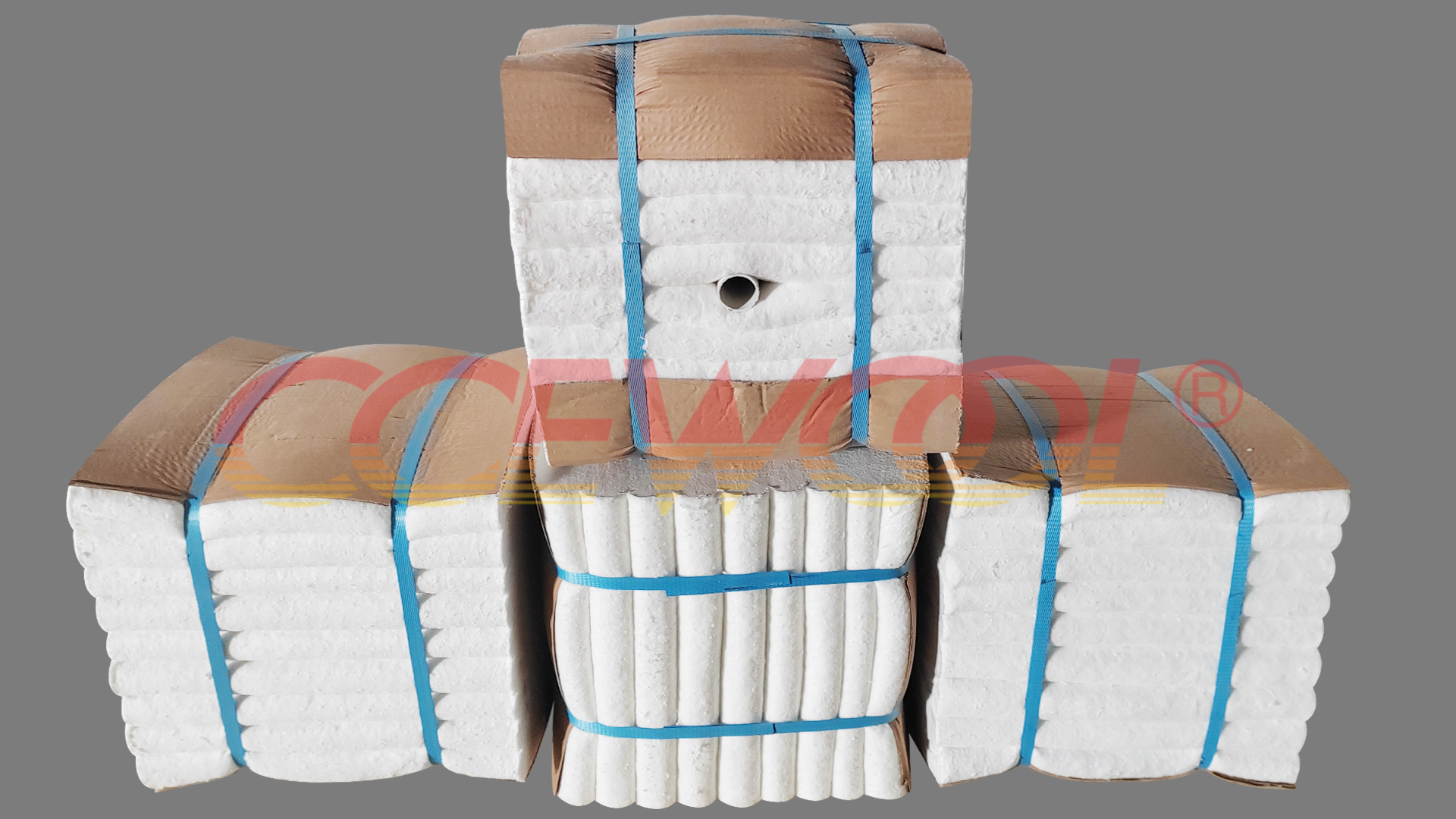What is the temperature range for insulation ceramic module?
- 02 Apr, 2025
- Industry

In high-temperature industrial applications, the choice of refractory material directly affects equipment performance and energy efficiency. Among them, the insulation ceramic module stands out with its exceptional insulation, easy installation, and long service life. It is widely used in steel, petrochemical, power, and ceramic industries. The temperature rating of insulation ceramic modules is a key performance metric that determines their suitable applications and insulation effectiveness.
Temperature Grades of Insulation Ceramic Modules
CCEWOOL® offers insulation ceramic modules in various temperature grades to meet different industrial needs:
1260°C Grade Modules (Standard Type):
Designed for medium to high-temperature equipment with continuous operating temperatures between 1050~1150°C, commonly used in heating and annealing furnaces.
1350°C Grade Modules (High Purity Type):
Made for environments requiring higher purity and thermal stability, with continuous working temperatures up to 1200°C, ideal for ceramic and glass kilns.
1430°C Grade Modules (High Alumina Type):
Composed of high-alumina ceramic fibers, withstanding continuous use at 1300°C+, suitable for extreme high-temperature operations in metallurgy and petrochemical industries.
Key Factors That Determine Temperature Rating
Fiber Composition
The ceramic fiber content varies by temperature grade. Higher temperatures require increased levels of Al₂O₃ (alumina) and other thermally stable compounds.
Forming and Compression Technology
Modules formed and compressed with a 5-ton press are denser and more structurally robust, offering greater thermal stability and resistance to thermal shock.
Low Impurity Control
CCEWOOL® uses a nine-step slag removal process to significantly reduce shot content and impurities, enhancing long-term performance and resistance to grain growth at high temperatures.
Different temperature-rated insulation ceramic modules offer tailored solutions for a wide range of high-temperature environments. At CCEWOOL®, we focus on high-purity raw materials, advanced manufacturing, and strict quality control to ensure every module delivers exceptional thermal stability and insulation performance. No matter the heat level of your equipment, there's a CCEWOOL® insulation ceramic module designed to meet your specific needs.



